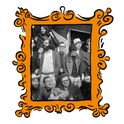Ludmilla Petrushevskaya is one of Russia’s greatest living writers. Her previous short story collection, There Once Lived a Woman Who Tried to Kill her Neighbour’s Baby, was a 2009 New York Times bestseller and was named as a book of the year by New Yorker critic James Wood. He described it as, “a revelation—it is like reading late-Tolstoy fables, with all of the master’s directness and brutal authority.” The story below comes from her new collection, There Once Lived a Girl Who Seduced her Sister’s Husband, and he Hanged Himself: Love Stories, which will be published in May. In an interview with one of her translators, Sally Laird, Petrushevskaya said, “Russia is a land of women Homers; women who tell their stories orally, just like that, without inventing anything. They’re extraordinarily talented storytellers. I’m just a listener among them.”
He never came by invitation—he never received one. He simply announced himself (often with a lengthy insult) through the door, then pleaded his way inside. At the dinner table he yelled and pontificated, spat out his food and bared his only tooth, wishing both to stuff himself and to have his say. He spoke in non sequiturs, always in a terrible hurry, never explaining anything. He must have believed it was the prerogative of an erudite man like himself to speak any way he wanted; didn’t he spend all his unfilled and unpaid days in reading rooms, working on some obscure bibliography or biography? Just wait till it’s done, he predicted to his poor hosts and their guests; he’d throw in some dirty laundry, some famous names, and voilà—we’d have a bestseller on our hands. But first he needed to finish this magnum opus with the help, he said, of foreign grants and lecture fees that never materialized. In the meantime, he lectured gratis in the smoking rooms of public libraries, where he showed up empty-handed, with no tobacco or matches of his own. Hence, the awkward giggling and convoluted openings—“God has nothing to do with religion” or “All politicians want is to be re-elected; may I bother you for a smoke?”
The people who knew him feared he might ask to stay the night; women of the house shared the expression, “I could sense he was on the verge of staying over.” Besides, he was old. (That didn’t stop him from announcing into someone’s intercom, “Let me in; it’s up!”) When he stayed, everything needed to be washed, aired, and dry-cleaned. Officially he was not homeless: after the divorce he was assigned an attic room with a ruined ceiling and exposed plumbing—imagine the smell. All he could do after the divorce was read, so he found refuge in public libraries, where he drank tap water and cadged leftovers from the cafeteria. Abandoned by his wife and children, he longed for hot food. On pension days his biggest splurge was a hot dog and sometimes one or even two hamburgers. Also on those days he’d call on his acquaintances, under the pretext of paying back a debt—thereby giving them reason to have him stay for dinner. The next day he’d be broke again and would go back to the same houses for another loan, or wait outside people’s offices, ambushing them with requests for money to buy medicine.
That’s how he lived for a long time, but things do change for someone like A.A., too. A fellow demagogue from the smoking room advised him about free health resort packages for the poor, and even helped him fill out an application at the office of social aid. That was over a year ago. Finally A.A. overheard someone bragging about going to a health resort for free. Ready to fight for his rights, he rushed to the social aid office and was informed that his request had been granted and that he had been expected at the resort two days ago. The woman at the counter blinked cleverly. He understood they were sending him in the off-season, in the worst weather, when no paying customer would go. He screamed and stomped his feet, but once outside he reconsidered. October wasn’t so bad. Pushkin liked October. And if you think about it, what is a health resort? Three meals a day, plus he could take extra bread to keep him full at night. At the thought of all that food, he began to salivate uncontrollably. He ran back to the library cafeteria to look for a leftover piece of bread.
First stop: his old flophouse, the scene of many battles. He spent the night there. In the morning he exchanged his smelly rags for some decent secondhand clothing. Then he raided local dumpsters for a discarded suitcase and found one, in imitation leather. He already owned a hat—a knit beret. He tricked the attendant at the library cloakroom for a scarf. “I must have left it here and then forgot... You see, I don’t have a woman to look after me, so things get lost...” The woman picked out a green rag that someone must have left ages ago and held it out with disgust. “This one yours? Was about to throw it out.” A.A. grabbed the rag imperiously and walked around the corner to try it on. The green scarf went nicely with his new dark jacket and black beret. Then the shoes: his smoking room buddies suggested he look through the dumpsters near big department stores, as a lot of people tossed their old shoes there after buying new ones. A.A. found a decent-looking pair, a little too big, but that was even better. In the evening he packed his notes and a pen (cadged from the post office) into the suitcase. There were eight days remaining at the health resort and two weeks before his pension.
At dawn A.A. left his vile room and boarded the train without a ticket. For the entire trip he stood next to the exit, shaking from fear and cold. Arriving at the resort, he found everything still closed. He dozed in the lobby, sitting up, like a gentleman, until the cafeteria opened for breakfast. Once it did, he stuffed himself with kasha and bread, swallowed three cups of sweet tea, and then stormed the little library. Straight as a rod, with his pen and writing paper in hand and his green scarf draped over one shoulder, he began by loudly demanding works by Spengler and Kierkegaard from the cute librarian. She shrugged her plump shoulders and sent him to the mystery section. A.A. yelled louder: the library needed more books, and he happened to know a certain warehouse where publishers dumped unsold copies. Just give him a truck and he’ll bring back hundreds of books! The librarian seemed indifferent to the news: she didn’t have a truck, and besides, people on vacation wanted light reading, like mysteries and detective stories.
At this point an elderly lady interfered. She overheard A.A. bragging and asked to take down the address of that mythical warehouse. As for the library, she agreed: they needed more serious books for the patrons like Professor (meaning him) and a PhD like herself. Well, almost—her thesis was finished, it was waiting on her desk, and she needed only to defend it. “Me too,” A.A. agreed eagerly. “Mine’s also on my desk”—even though he had no desk. The cute librarian was forgotten; the educated pair was loudly discussing matters of cultural importance. Leaving the library, A.A. held the door for the lady, sweeping her off her feet with such chivalry.
They walked into the park, inhaling the smell of damp leaves and wood smoke, and sat down on a bench under an ancient tree. “To walk the blessed path,” A.A. pontificated, “one must give up his possessions—only then can one reach the sacred door; but what happens if one doesn’t own anything? Will the door open for him?” She listened to his blabbering, taking it in gratefully. They almost missed lunch. Again he gobbled down his portion and all the bread on the table; he asked the server if he could move to Tamara Leonardovna’s table, but apparently there was no room. Ready for another walk, he waited impatiently for her to finish, but the lady excused herself—she needed rest. A.A. went to his room, too, and stretched out on the clean sheets, almost crying with joy.
After dinner A.A. stuffed his pockets with bread, and together they walked over to the stream. Again she listened meekly; this time he expanded on Francis of Assisi, who had walked the blessed path and considered every insult God’s gift. Back in his room he made a mess of his squashed bread slices, to his roommate’s displeasure. A.A. headed off the impending confrontation by running out into the hall, where people were watching television. He flopped on a couch and proceeded to watch one programme after the next, annoying everyone with vitriolic comments and wild laughter.
Unforgettable days rolled by. The happy couple took walks in plain view, ignoring giggles. A.A. successfully campaigned for a transfer to Tamara Leonardovna’s table—he simply moved there, and one of the enraged ladies switched tables in protest. What really bothered the others was Tamara’s age (which they found out from the director’s secretary). She was seventy-five—fourteen years older than he was! It was practically statutory rape, the resort ladies decided. Eventually public opinion ruled that this A.A. was simply looking for a perch, for someone—anyone—to take him in; for what kind of prince charming was he—without hair, teeth, or a roof over his head? Somehow they knew everything about him. A.A. couldn’t keep his voice down to save his life. But Tamara didn’t want to know. When, a week after they left the resort, one of the ladies called to check in on Tamara at home, A.A. picked up the phone. Like small children they were unable to part.
Now they are living together in Tamara’s little apartment, away from prying eyes. A.A. eats regularly, before and after visiting the library. Tamara keeps house, looks after him, complains often but receives no sympathy; the blessed path is thorny. A.A. now owns two writing pads, which Tamara has purchased for him. She wants to have his pension recalculated and to make sure he receives benefits like a free subway pass—he used to beg and fake injuries to be let in.
Tamara’s whole family is up in arms about this cohabitation, especially her nephews, who are terrified that the old fools may marry. They cannot deny, though, that Tamara looks fresher, or that she is full of plans and new energy. For example, she has located that mythical book warehouse and now takes books to nursing homes and hospitals, where people cannot afford them.
At night they squawk to each other about their day. Tamara complains and recites her grievances, and A.A. doles out advice and admonitions like an austere paterfamilias. Then they go to their beds and read, exchanging notes; in the morning they resume their squawking and arguing. Who knows why this A.A. screams so much—he may be scared of losing her, of finding himself back in the flooded attic.
She refuses to marry him, although she did once kiss his hand when he was prostrate with illness. At night A.A. cries and howls with grief, but in the morning he plays boss again, and Tamara, barely awake, hurries with his eggs. He continues to show up uninvited at people’s houses, but now he holds himself more assertively and makes frequent allusions to his wife, “so-called Tamara,” and her undefended thesis on Charles Dickens.
Eggs is the luxury that graces their breakfast table the first three days after pension, but A.A. is shaved and dressed in everything clean, and Tamara walks around in practically new winter boots that A.A. fished out from a dumpster. A.A. often criticises her appearance: “So-called Tamara, go fix your hair!” Tamara crawls around her little apartment, always thinking about the next meal for this parasite. Where did he come from, helpless like all parasites and parasitic like all helpless people? And yet he criticises and instructs, while she has no strength left to look after him. At the end of the day she drags herself to the food market to pick up from the floor squashed veggies and fruit for his dinner. She feels ashamed in the presence of some imaginary friends and nemeses, but she does have a justification: a certain old photo, the holiest of her secrets.
In the evening he comes home, gobbles down her vegetable stew in a second, and starts flailing his arms again, this time thrashing the very personage whose bibliography or biography he’s been putting together for ten years. The man was a fraud, it turns out, and Tamara says, “I told you so,” and they squawk some more and then watch television, exchanging acerbic comments.
That night he cannot stay asleep. He wakes up in tears. Tamara Leonardovna tucks him in and blows on his bald forehead, as she would have done for her baby if he had lived. And now for Tamara’s secret: she never believed the baby had died at birth! No, you see, here was her son, with an altered date of birth; he was back to sleep. There is a photo of him, the baby’s father, that she once thought she’d destroyed.
It turned up mysteriously in the folder with her yellowing thesis. It’s the same face as A.A.’s, only younger.
She holds out the photo with a trembling hand, but he pushes it away: “What does that have to do with me? What’s wrong with you? Look at the date: I wasn’t even born yet.” He goes back to watching their tiny old television, and she puts away the photo with a whisper: “My little one.












